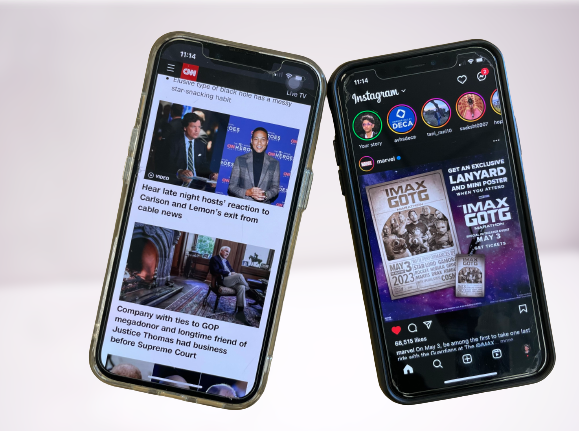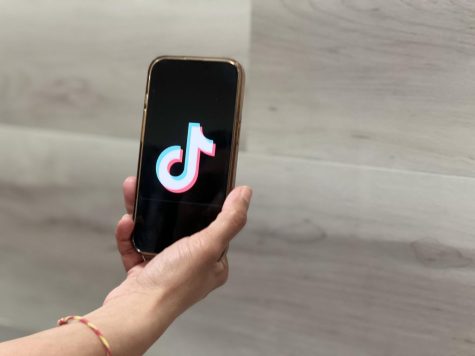Just another video: How is social media impacting students and the political perspectives of the next generation?

The increased use of social media platforms has facilitated the rapid spread of misinformation in the form of news.
With the return from the COVID-19 pandemic, students in Pleasanton and around the country find themselves in a digital world where social media holds the power to influence their political perspectives.
While social media is often considered to be a form of entertainment, some students have become dependent on certain applications for their understanding of news and global events. Experts, however, have cited that misinformation has become a real threat, acquiring the power to escalate tension and have real-world consequences.
“Nowadays, students rely heavily on learning all sorts of news to follow trends and be relevant, which mostly comes off of social media. Apps, like TikTok and Instagram, can control the political vision of their viewers and are important during things like elections, where misinformation can be a large factor,” said Raghav Pottabathini (‘25).
Students in high school tend to be the most vulnerable in aspects of political positioning, as they are becoming young adults that have power to vote and influence the direction of the nation. To be relevant, students often do what they see online, where in a place that if full of conflicting ideals, can polarize people and radicalize their beliefs.
“I do think that high school students are more vulnerable, because they tend to lack a certain sense of decorum and do not quite have the experience. With the internet being a very unpredictable place, children often follow whatever they see is relevant without fully understanding the importance of what trends can represent,” said PUSD Parent Rachna Agnihotri.
With many credible news publications (such as digital or physical newspapers) requiring a subscription, people tend to use free news outlets that are not explicitly verified. Experts have cited that when students tend to look toward popular influencers on free applications such as Instagram, their actions have an impact on the political views of their audience.

“People in the media that want to be really famous tend to say and do really outrageous things to get a lot of likes and views to stay relevant. Misinformation is really amplified, because you have a small number of people that want to make a lot of noise, whether they are media personalities or lawmakers, that want to be on the news,” said AP World History teacher Christopher Murphy.
All in all, the digital world of social media has had a huge impact on how students (and people, as a whole) perceive political information, which, if unregulated, can have potential consequences on events such as the 2024 election.
Your donation will support the student journalists in the AVJournalism program. Your contribution will allow us to purchase equipment and cover our annual website hosting costs.

Jeanette D'Addabbo • May 3, 2023 at 11:19 am
Amazing article, speaks to me since I also get a lot of news from social media. One note, third paragraph down seems to have some misspellings and grammar issues in the quote.
Zenil Koovejee • May 7, 2023 at 4:55 pm
All fixed! 🙂
Thanks Jeanette!